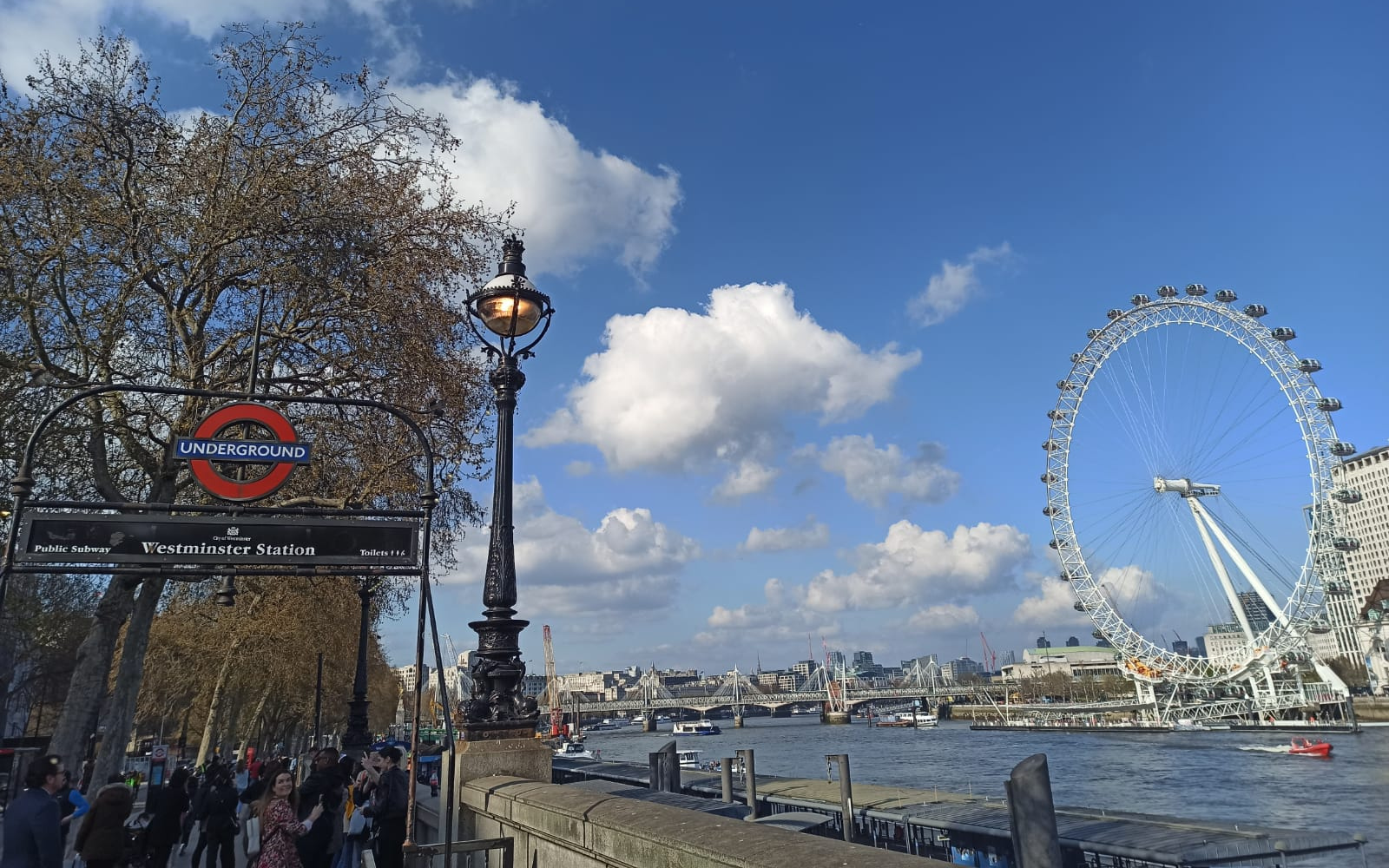I have been running Search London, a networking event, for 13 years, and it has been so successful that it has become a major feature in the SEO conference calendar.
I originally launched the event in October 2010, but I will be celebrating its 13th birthday on February 26th, 2024, in central London.
I wanted to share some of the lessons learned so that others who have an idea and want to run events can do so outside of work.
When I launched Search London, my objective was to provide a safe place to share search industry news and promote a wide range of speakers, including those presenting for the first time, where they could talk about their case studies and show the audience how they could also generate such positive results.
1. Choose Unknown Speakers
Many speakers at Search London were originally unknown in the SEO world but have gone on to present at BrightonSEO and other larger conferences.
When I first started speaking, it was difficult to secure a speaking role as I needed experience – but as I did not have any, it was very difficult.
I don’t want this to be a barrier for others in our industry wanting to present. Over the past 13 years, we have had at least one new speaker at each event, meaning we have heard from over 70 first-time participants.
2. Have Enough Time For Networking
The other objective of Search London is to provide a safe space for those to learn more about SEO, PPC, and social media.
When I was an Account Director at an agency, I did not have the support from a manager to help me – yet, as I was leading a team, I had to know more than the members of my team did.
Therefore, I wanted to create a place where I, along with others, could learn from each other and have enough time for networking and getting to know more people in the SEO community.
We start our events at 6 p.m. and have the venue until 10:30 p.m., though we sometimes go on to 11 p.m.
Many of the talks start early, and we have enough time to discuss the presentations and the topics that are going to be presented.
3. Choose Speakers From Different Backgrounds
When I first started Search London, there were a majority of male presenters in our industry and many of those with years of experience.
I wanted to have a more equal balance with more women presenting.
I also did not necessarily want presenters from large agencies or brands but those from small companies or those running their own businesses.
I made sure we had a wide range of speakers, not just from London but from elsewhere in the world.
With Search London going online, we now have a lot more reach. I do not want location to be a restriction to those presenting.
4. Make It A Learning Experience And Have Focus
I have always favored practical work versus theory.
Presenters share real case studies, and none of the talks are theoretical. It does not matter about the size of the budget that is available for a project, but the results.
I always encourage people to ask for audience questions; each speaker has a Q and A slot after the talk, and most presenters stay at the event for the whole evening so attendees can ask speakers questions.
Running networking events requires a clear agenda and focus.
I did not just want it to be a group of people getting together without some specific idea or inquiry. Therefore, it was important to have at least one speaker.
I wanted to make it as informal as possible, as this is an event people are attending after work.
It is important to remember that those people attending the event have probably been sitting down all day at work and need a stimulating environment in which they are free to circulate and ask questions.
I always have a screen up at the beginning so people know where the talks will be and attendees can organize themselves.
5. Have Scholarship Tickets
Scholarship tickets were something I did not do when I first started running the events. Instead, I asked companies to purchase tickets for their staff.
However, now, I can offer scholarship tickets and will be doing more in 2024.
It is important to offer an easy method for companies to purchase tickets for their staff to attend your event.
6. Find A Central Venue With A Separate Room
When I first started running Search London, I was in central London.
Post-COVID, not as many people were working at the office, and many were working from home. However, location is still very important, so choosing a venue that is central and well-connected makes it easy for people to come after work.
Very often, pubs have an area that can be rented, which can be a great option – but make sure it is a separate room. Otherwise, it can be very noisy. Monday and Tuesday nights are typically the cheapest nights to rent a room.
Try to find venues where the minimum spend is less than £1000 a night, and if you do not reach the minimum spend, ask if you can purchase drinks or food to take away.
7. Do Not Share Email Addresses
Data protection is a very important subject and when I first started having sponsors, many asked for email addresses of attendees.
I have never shared email addresses with sponsors.
If you want to do so, follow the example of BrightonSEO and ask attendees when they register whether they want to be contacted by sponsors and are happy to have their personal contact or work details shared.
8. Charge For Events
In the beginning, Search London was free, as it was on Meetup. That worked well when I did not have to reach a minimum spend at the pub.
However, when pubs started charging, and it became harder to find venues of more than 50 people capacity, I wanted to have a guarantee on the number of attendees.
Charging a small fee and selling tickets via Eventbrite has helped guarantee numbers. However, there have been cases where I did not charge as we were being hosted by a company.
For example, at the first in-person event after COVID-19, November 2021, we had 193 RSVPs, but then only 50 people attended.
Luckily, we were not renting a venue as the Trainline team was hosting us – but if people had actually bought their tickets, then there would not have been such a dropout.
Once people have paid for a ticket, they are much more likely to go to the event, unless, of course, they have an emergency.
9. Have A Good Team
You cannot do everything if you want to grow your event.
When I moved to Australia at the end of 2012, I realized I still wanted to continue to run Search London, but it was not physically possible to come back every two months.
Tim Sheed, who came to the very first Search London event, helped organize the in-person events along with Luella Ben Aziza, Russell McAthy, and Mike Chidzey.
Once I came back to live in Europe, Tim continued to help and was the co-organizer of Search London for the in-person events.
10. Move Away From Meetup Once You Have A Regular Group Of Attendees
Search London was originally a Meetup group, and it is still on Meetup; however, as I have started selling tickets for events, these are now sold via Eventbrite.
As Search London grew, I should have started an online community away from Meetup.com, for example, on Facebook or Slack in recent years.
11. Build A Network
Although I did not have an online community or following, such as on Slack or Facebook, I was an editor for State of Digital. I started as a blogger and met a lot of writers in person.
From building this network of writers at State of Digital, I asked some of them to speak at Search London.
From running Search London, I was invited by Mike Chidzey to co-host SEO Office Hours, where we have an informal weekly chat with two special guests answering people’s website and SEO issues.
12. Start Sponsorship Early
In order to secure a sponsorship, it is important to start looking early for a suitable sponsor or venue.
When I first started running these events, I did not ask for much sponsorship.
Now, I ask for sponsorship for as many events as possible.
I would recommend those starting their own events not be shy about asking for companies to help support the event.
13. Plan More Time Than You Need For An Event
Days and weeks pass quickly, so it is important to give yourself enough time to organize the event. I like to always organize at least two months in advance. I ask people to pitch to speak at Search London.
If you can, try and secure sponsorship from at least one company, and have your speakers guaranteed as soon as you finalize a date.
Never be complacent and assume that because people have come in the past, they will continue to come.
For example, one event we ran in March 2018, we had just ten attendees. There were more who had signed up, but due to the extreme cold weather causing snow in some parts, many were not able to come.
In Summary
Be open to new ideas and change the format of your meet-up.
Although I have been running these events for 13 years and they have been successful, there can never be a time when it becomes routine.
Choose different venues, different topics to be presented, new speakers, and keep up with new ideas and new technology.
Everything is moving so fast, and it is important to keep up with trends and developments in the industry.
Make it as exciting as possible so that everyone will look forward to the next event and will continue to come and be part of the great SEO community.
More resources:
- The Best SEO Conferences For 2023 (Virtual And In-Person)
- Professional Growth: The Value of Smaller SEO Events & Masterminds [Podcast]
- How To Build A Global Community By Running Industry Events
Featured Image by author





